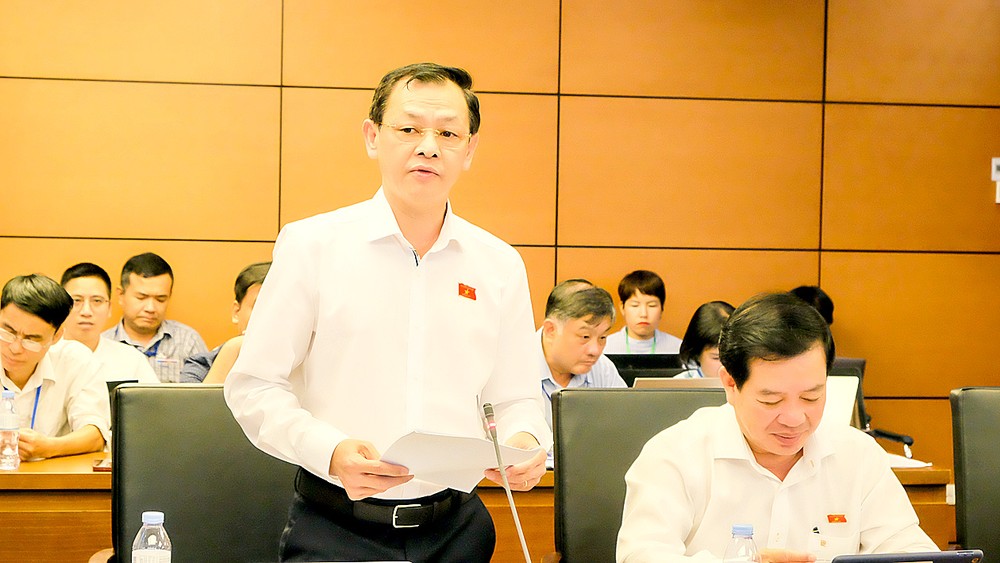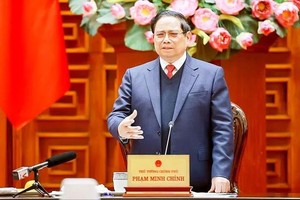
Yesterday morning, the National Assembly discussed the Draft Law that proposes amendments and additions to several provisions of the Law on Health Insurance, introducing numerous modifications aimed at enhancing convenience for the public.
Some NA deputies voiced their opinions about the shortcomings in current health insurance regulations and proposed solutions to ensure people's rights and at the same time improve the quality of health services, especially at grassroots medical facilities.
According to Minister of Health Dao Hong Lan, although the Law on Health Insurance has been implemented for 15 years and attracted 93.35 percent of the population to participate, there are still many shortcomings.
She pointed out one of the shortcomings that the draft law proposes to amend is the referral procedures.
The minister stated that eliminating referral procedures for certain rare and severe diseases allows patients to seek specialized care directly, reducing administrative burdens, improving patient convenience, lowering out-of-pocket costs, and saving resources for the Health Insurance Fund.
Deputy Nguyen Tri Thuc from Ho Chi Minh City proposed eliminating referral procedures between primary and secondary care levels at district and provincial hospitals. However, he emphasizes the need to retain referral procedures for specialized care to ensure optimal patient outcomes.
If referral procedures are eliminated between district and provincial hospitals, many patients will bypass primary care facilities and seek treatment directly at larger hospitals and specialized centers. This could lead to the collapse of the primary healthcare system within 1-2 years, contradicting the government's policy of investing in grassroots healthcare development.
He therefore suggested the elimination of administrative obstacles in the examination and treatment processes related to health insurance. This change would enable individuals to select appropriate medical facilities without being constrained by their geographical location.
Deputy Nguyen Tri Thuc from Vietnam’s capital city of Hanoi also advocated for health insurance to evolve towards covering the screening of certain cancers, which would facilitate early detection and timely treatment, ultimately leading to a reduction in long-term healthcare costs.
Mr. Nguyen Anh Tri expressed concerns regarding the numerous issues plaguing the current health insurance system, particularly the potential risk of the Health Insurance Fund facing bankruptcy if the existing operational methods are maintained. He noted that categorizing insurance lines by level to alleviate pressure on the health system is merely a temporary fix and lacks true effectiveness.
The deputy has stated that categorizing insurance lines by level to alleviate pressure on the health system is merely a temporary and ineffective measure. A comprehensive reorganization of the health system is essential to ensure that individuals can access nearby health facilities equipped with sufficient resources and competent medical professionals. Furthermore, it is crucial to establish equity in health insurance benefits, allowing individuals, regardless of their location, to receive high-quality health services.
Supporting this viewpoint, Deputy Pham Khanh Phong Lan from Ho Chi Minh City highlighted that one of the primary obstacles to effective health insurance utilization is the overly complex payment and referral processes. This complexity not only diminishes the efficacy of the health insurance system but also leads to a sense of inconvenience, resulting in dissatisfaction among individuals using health insurance cards at medical institutions.
The deputy noted that these intricate procedures stem from apprehensions regarding the potential collapse of the Health Insurance Fund.
Consequently, it is imperative to implement various technical measures to rigorously oversee health insurance examinations and treatments. Ms. Pham Khanh Phong Lan also recommended a thorough review of the entire financial framework and associated regulations to guarantee that individuals can access the highest quality health services through their health insurance, while also enhancing the capabilities of the primary health care system.
























